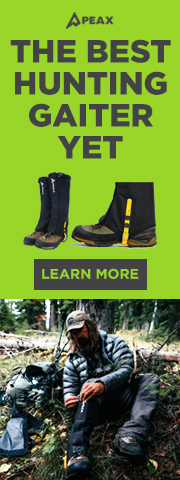JohnFitzgerald
New member
- Mar 31, 2014
- 1,108
It\'s my impression and my belief that during rut, most if not all communication given by bulls, is directed at the cows. Don\'t bulls spend most of his time proving to cows that they are the dominant bull? Case, when I hear Challenge Bugles I\'m still very far off. When I get close, those tend to change to short screams w/ or w/o nervous barks. And at times they don\'t even give any sound at all.
So why would a herd bull Challenge another bull? If a Challenge Bugle is a warning, then why doesn\'t the herd bull continue to use it?
Or is a Challenge Bugle really a Dominant Bugle to prove he is the best.
Lets hear it!
So why would a herd bull Challenge another bull? If a Challenge Bugle is a warning, then why doesn\'t the herd bull continue to use it?
Or is a Challenge Bugle really a Dominant Bugle to prove he is the best.
Lets hear it!



